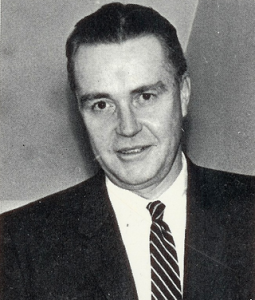 I thought of Clay Hunt today when I took a look at Ezra Pound’s Spirit of Romance, Pound’s first prose book, a set of lectures on medieval romance language poetry. Of course, I might not have become an English major and so might not be looking at a minor work of Pound except for Clay Hunt. But it was more specifically those poets, Arnaut Daniel, Guido Cavalcanti, that Hunt taught with such gruff pleasure in his Dante course.
I thought of Clay Hunt today when I took a look at Ezra Pound’s Spirit of Romance, Pound’s first prose book, a set of lectures on medieval romance language poetry. Of course, I might not have become an English major and so might not be looking at a minor work of Pound except for Clay Hunt. But it was more specifically those poets, Arnaut Daniel, Guido Cavalcanti, that Hunt taught with such gruff pleasure in his Dante course.
Like much of the late 60’s English Department, Hunt was a second generation New Critic. They had adopted the method that eschewed biography for close readings of the poem itself. It was usually lyric poems rather than longer works, and it was often those New Critical favorites like Donne and Marvell. And Hunt kept the Modernist edge, dropping sentiment for a more earthy physicality and more austere intellectualism.
And now I think he may have also picked up Pound’s faux-folksy Idaho colloquial style. For Hunt this was a Kentucky Southern (most of the first generation New Critics were Southerners) cross-cut with long readings in Italian.
At the end of the semester, Hunt invited the class to his house for drinks. I’d sipped sherry at Robert Allen’s architect-built house on a Williamstown hillside. Hunt lived in a cabin up the road to the Hopper and we drank beer from cans on his porch looking up at Greylock.
Ken Jackson
Remembering Clay Hunt
John Keats
Season of mists and mellow fruitfulness!
Close bosom-friend of the maturing sun…
I remember some of the lines of “To Autumn,” the first poem I wrote about in English 101. I’ll never forget the line that Clay Hunt drew across the entire first page of my essay. Bright red. Diagonal. Guided by his ruler from top left to bottom right. I can still see the three-word writing lesson he penned on that line: “Cut the crap.”
I can still hear the ice-breaker he used when we met to talk about that paper: “Don’t waste time describing the question. I wrote the question, so I know what it is. Get to the point.”
For over half a century, every time I’ve begun a second draft of anything, I see that diagonal line, and I see those three words, and I hear Clay’s voice. Rough. Kindly. With a dash of Kentucky.
Dante Aligheri
Per corer migliori acque alza la vele
omai la navicalla del mio ingegno,
che lascia dietro a sè mar si crudele…
For better waters now the little bark
of my indwelling powers raises her sails,
and leaves behind that sea so cruel and dark…
John Ciardi’s translation of the opening of The Purgatorio
To course over better waters the little bark of my wit now lifts her sails, leaving behind her so cruel a sea…
John D. Sinclair’s translation
In Clay’s Dante course (pronounced, of course, DONN-tee), he insisted we juggle three versions of The Divine Comedy:
• the original Italian text, so we could understand the musicality of the language and feel the rhyme and meter
• a literal English translation, so we could understand what the heck was going on
• a second English translation so we could experience rhyme and meter in our own language.
I don’t remember Clay ever reading from notes. His intellect captured the span from physics to metaphysics, from history to mystery. In the Dante class, I remember wondering if he knew everything about everything.
Dylan Thomas
Twenty-four years remind the tears of my eyes.
(Bury the dead for fear that they walk to the grave in labour.)…
It was 1968. Senior year. I was sitting in an economics class titled something sexy like “The Corporation.” Three weeks into the semester, in the middle of class, it hit me. The last semester at Williams. Ever. Thanks to the Viet Nam War, for some it would be their last semester anywhere. I gathered my books as if in a dream, stood up, mumbled “job interview,” and left. I floated directly to Clay’s office. “I need to be in your Modern Poetry class.” “Tom, we’re a ways into the semester.” “Clay, I have to be in your class.” He looked at me and understood. “See you there tomorrow.” To catch up, he had me analyze the poem “Twenty-four Years.”
The years go by.
I read that Clay Hunt died in 1977.
No he didn’t.
Tom Pierce
